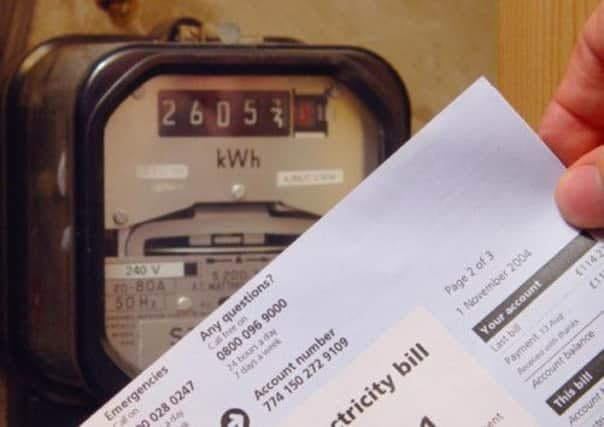How to... beat the bills hike


1. ENERGY COSTS
Energy bills have rocketed by an average of 41 per cent since 2008 and continue to climb, with the big six all announcing fresh hikes averaging 9 per cent in recent weeks. The British Gas increase (of 9.2 per cent on average) takes effect today. (SAT 23rd)
If you don’t already pay your gas and electricity bills by direct debit, you should. Most providers will give an average 5 per cent discount for this method of payment. Switching to online billing could save another 10 per cent on your bills.
Advertisement
Hide AdAdvertisement
Hide AdIf you have not changed provider for a while or have never changed, now could be a good time to shop around to see if you can get a better tariff elsewhere. A range of comparison websites can do the legwork for you.
2. MONTHLY DIRECT DEBITS
Routinely check your bank statement to see how much you are paying out every month in direct debits and for what. Do you know what every payment is for and do you still make use of these products or services?
For example, do you need all of the satellite television packages you are paying for? Could these be reduced?
3. INSURANCE PREMIUMS
Shop around every year for car, home and pet insurance to get the best deal on the market.
Mortgage lenders often include buildings insurance as part of a mortgage deal, but this can be one of the most expensive ways to get this type of cover.
Make a note of your renewal dates and scour the market for the most competitive deals as those dates approach.
4. HEALTH INSURANCE
When did you last review your life insurance, critical illness or income protection cover? If not for a number of years, get them checked as soon as possible.
Know what you are covered for and ensure that you are not paying for something you don’t need. It makes good financial planning sense to get this done irrespective of whether you are trying to save money or not.
5. GENERAL BUDGETING
Advertisement
Hide AdAdvertisement
Hide AdThe best way to protect your purse-strings, especially going into the expensive festive season, is to adopt some good budgeting skills. Write down all of your regular outgoings. This is likely to be the same every month, but keep it up-to-date.
When you are paid, subtract your bills from your salary and this is what you are left with for the month. You then need to keep a daily tab on what you are spending.
• Keith Mackie is a certified financial planner at Acumen Financial Planning